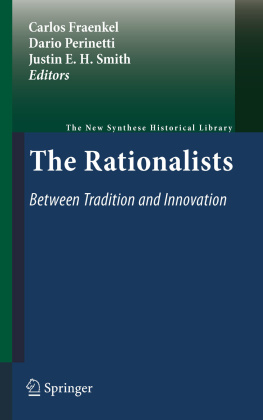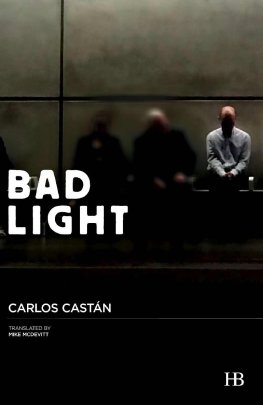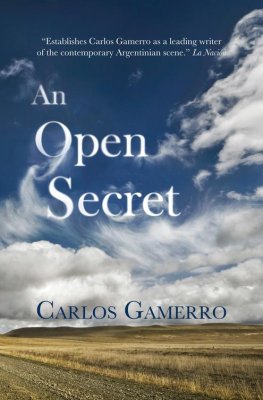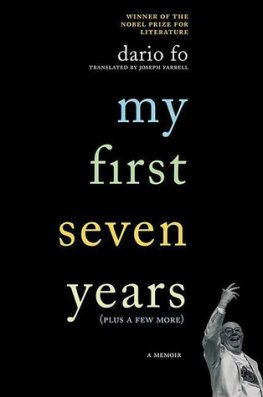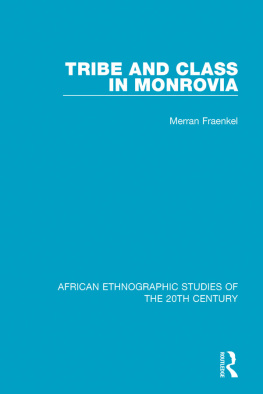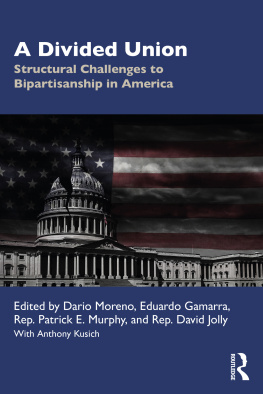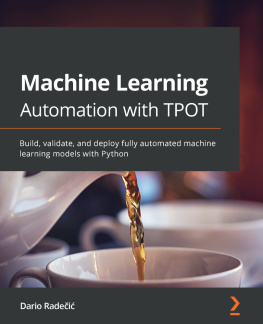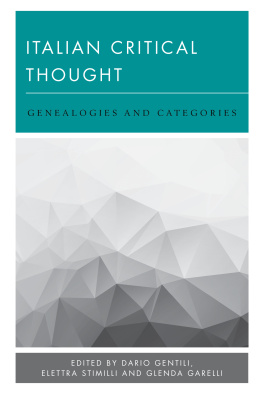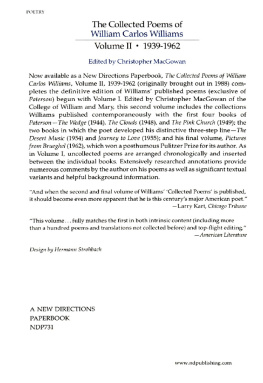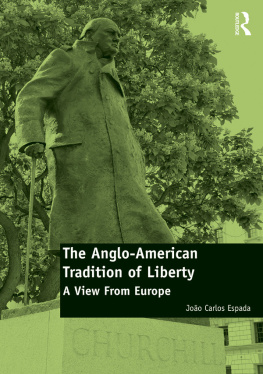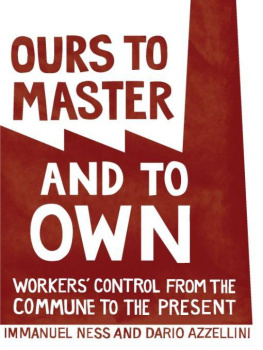Carlos Fraenkel , Dario Perinetti and Justin E. H. Smith (eds.) The New Synthese Historical Library The Rationalists: Between Tradition and Innovation 10.1007/978-90-481-9385-1_1 Springer Science+Business Media B.V. 2010
1. Introduction
According to Francis Bacon, the Rationalists are like spiders who weave webs out of their own bodies. The Empiricists, by contrast, are like ants who only collect things and make use of them.
Today the distinction between Rationalism and Empiricism is often acknowledged as pedagogically useful, but as failing to capture the complexities of the philosophical concerns and orientations of the thinkers it is meant to characterize. Yet no one is quite ready to dispense with it, and scholarly works continue to be published, including this one, that feature the label in their titles.
The attempt to come up with a set of core doctrines, shared by all philosophers traditionally grouped together as the seventeenth-century Rationalists, is a considerable challenge. Not even the belief that every thing or event in the world has a reason for its being, that the world is, in short, a rational place, can be confidently attributed to all of them. There is, for instance, substantial evidence that for Descartes all things, including necessary truths in mathematics and logic, are contingent, i.e., dependent on Gods will and could be otherwise if God had willed so.
Or take the related belief that all real knowledge is arrived at by intellectual intuition or the use of reason and deduction, rather than inductively by use of the senses. Descartes for one appears to accept the authority of a third source of knowledge. In Principia Philosophiae 1.76, for instance, he contends that revelation is, in fact, our most certain path to knowledge and that in case of a contradiction between reason and revelation, the former must submit to the latter:
But above all we must imprint in our memory as the highest rule that the things revealed by God to us [ nobis a Deo revelata ] must be believed as more certain than everything [ ut omnium certissima esse credendam ]. And however strongly the light of reason appears to suggest to us something else, even if it is most clear and evident, our faith should be put in the sole divine authority, rather than in our own judgment.
Despite these caveats, however, there are fairly good textual grounds for attributing the doctrine that the world is a rational place to many of the major thinkers we classify as Rationalists, though it is Leibniz, with his principle of sufficient reason, whose philosophy is most solidly rationalistic in this sense. As for the epistemological stance traditionally associated with Rationalism, it is certainly true that, when Descartes, Spinoza, and Leibniz engage directly with questions concerning knowledge, or explicitly contrast their own views with those of empirically-minded thinkers (as, most famously, in Leibnizs 1704 response to Lockes Essay concerning Human Understanding ), they do emphasize the importance of the faculty of reason as more fundamental than, and explanatorily prior to, anything derived from the senses. But one thing such a characterization fails to capture is the intense interest of all of the Rationalists in knowledge obtained from observation and experience, and particularly from scientific investigation of the natural world. Descartes certainly did not believe that one could deduce by a priori means the particular structure of the optic nerve. His epistemological commitments were, in fact, perfectly compatible with procuring the eyes and brains of slaughtered animals from the local butcher in order to investigate this structure.
But even if the Rationalist label points to something like a family resemblance between a number of seventeenth-century philosophers, we may still ask whether in grouping them under this banner we are in fact homing in on the most salient, or interesting, aspect of their vast contributions to philosophy and science. The Rationalists are often taken as being primarily concerned with metaphysical and epistemological questions, while short shrift is given to their interest in politics, religion , experimental science, and other fields (perhaps with the exception of scholarly attention to Spinozas and Hobbess political philosophies). It is worth asking whether characterizing the Rationalists as Rationalists does not have the effect, desired or not, of obscuring from view the entire scope of their thought. The Rationalists were rationalists, but so were many philosophers before them, and the Rationalists, like their predecessors, were many other things besides. In recent scholarship, this standard account of Rationalism has been revised for individual thinkers associated with the school, but the movement as a whole has yet to be treated in keeping with the recent turn in history-of-philosophy scholarship towards greater sensitivity for historical contexts and towards considering the full range of intellectual concerns of past thinkers in order to understand their philosophical projects.
If we agree with scholars such as Jonathan Bennett, that what is of most value in the works of philosophers such as Descartes, Spinoza, and Leibniz are the arguments that we may extract from these works and, regardless of our time or place, put to use for the purpose of resolving our own philosophical problems, then the Rationalist label appears warranted, since the parts of these works most amenable to extraction and reconstruction concern questions of knowledge, its acquisition, and its justification.
The growing trend in Anglophone historiography of philosophy is to acknowledge the necessity of gaining a wider-scoped view of the work of philosophers in history, not just because such a view is truer to who these philosophers were as historically and socially embedded actors, but also, and much more importantly, because such a view is necessary for adequately understanding the core philosophical doctrines that earlier historians of philosophy were generally content to read simply as timeless exemplars of good argumentation. To cite one telling example, it is well known that over the course of the 1690s, Leibnizs mature metaphysics of substance began to take shape, and that in this metaphysics the key notions of force, both active and passive, played a central role. The notion of force can be traced back to his science of mechanics, which starting in the 1680s Leibniz began to see as something like a bridging science between physics and metaphysics. Now, it turns out that Leibnizs notion of force took shape in a period in which he was thinking intensely not just about mechanics as an abstract theory of the motions of bodies, but in particular about the mechanics of mining: he spent the better part of the early 1680s in the silver mines of the Harz mountains, trying to figure out a way to harness the power of the wind in order to make water flow upwards, which in turn would generate all the power necessary for a major mining operation. Recent studies have argued, in steps too elaborate to describe here, that it was in the context of Leibnizs engagement with the mechanics of mining that he came to have the insights into mechanics in general that in turn brought him to his mature metaphysics of substance. Now, it is not just because when Leibniz first devised his mechanics he probably thought of himself more as a mining engineer than as a metaphysician that we today should take this bit of context seriously, but also because we might discover that certain of the features of Leibnizs deepest theoretical account of the origins of motion in bodies arose out of the particular exigencies of the engineering project he had taken on.

